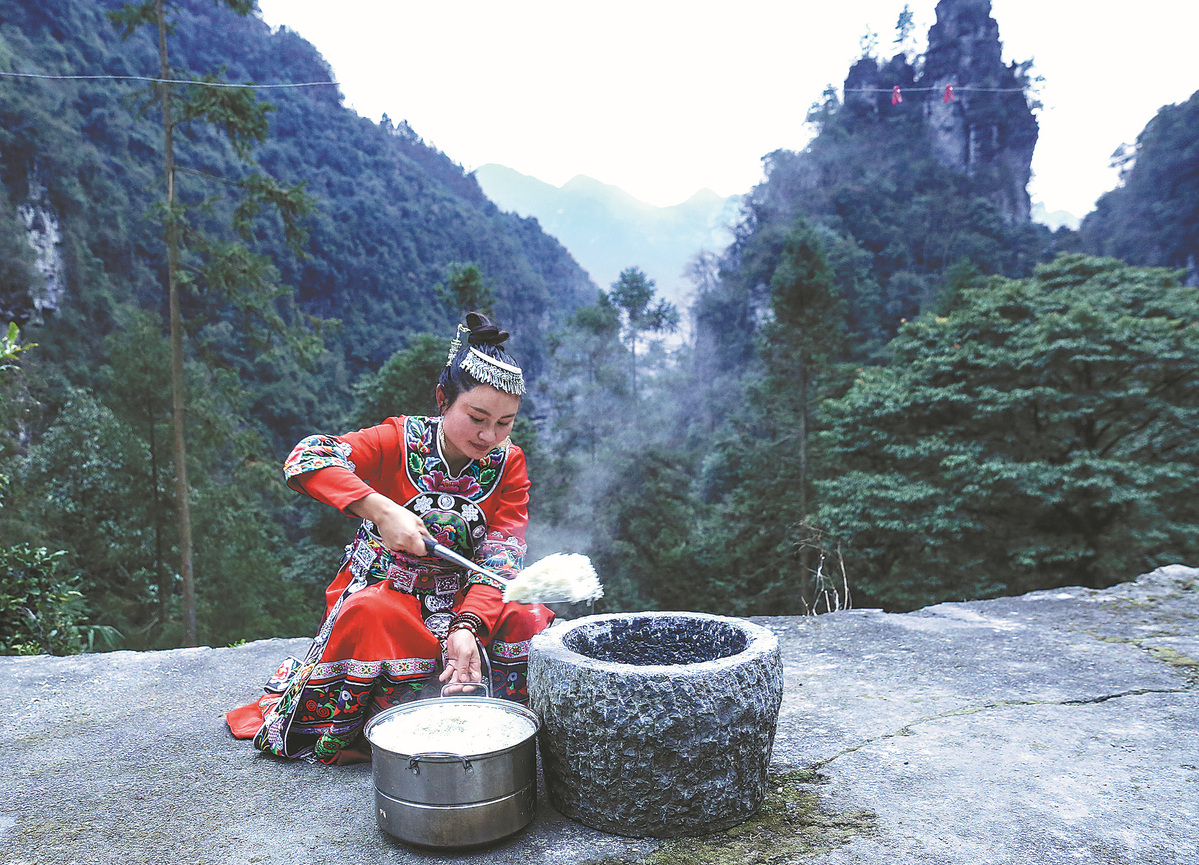China's ethnic groups make jolly melodies for New Year
Local cultural traditions merge with Spring Festival to enrich celebrations across the country, Zhao Ruinan reports.


Dates for the Tibetan New Year can vary in the Xizang autonomous region, depending on altitude and harvest time. But this year the festival — known as Losar — coincides with Spring Festival on Feb 10. As it draws near, Tsetan Wangmo, a resident of Lhasa, Xizang, eagerly awaits.
For Tibetans, Losar is a time of joyous gatherings and lively parties, symbolizing new beginnings and providing an opportunity to rekindle friendships and express love.
"Losar is one of the most important holidays for Tibetans," Tsetan Wangmo said. "It represents a fresh start, new plans and hope for the coming year. It brings people together. It allows us to reinvigorate our relationships."
Preparations for the Tibetan New Year have already commenced in her household. House cleaning plays a significant role. Along with many other Tibetans, she will consult a monk or astrologer to pick an auspicious day for the annual cleaning ritual, followed by the symbolic act of discarding rubbish in a specific direction based on the consultation's outcome.
Preparations also include traditional activities — frying pastries, air-drying meat, purchasing new clothes or stocking up on various snacks, fruits and nuts. Tsetan Wangmo said her family has already prepared air-dried yak meat and plans to do more shopping in the next few days.
On the first day of Losar, families typically celebrate within their own homes. From the second day onward, they invite relatives and friends to gatherings, which last for at least 15 days and include plenty of barley wine and beer.
The Tibetan New Year, one of the most important traditional festivals for the Tibetan people, is not just about the harvest, reunions or blessings. It also serves as a vehicle for preserving ethnic culture and showcasing ethnic characteristics and spirit, said Zhong Jinwen, a professor at Minzu University of China's School of Chinese Ethnic Minority Languages and Literature in Beijing.
In China, ethnic groups typically have their own traditional calendars. The timing of the Tibetan New Year is determined by one of those unique calculations.
- Shanghai university launches AI platform for global scientific collaboration
- Rainstorm forces evacuation of over 3,000 residents in suburban Beijing
- Two dead, two missing after torrential rainfall in Hebei
- Recall vote shows DPP's manipulation runs against Taiwan people's will: mainland spokesperson
- Expert: 'Taiwan independence' has no future
- Closed-door seminar highlights China's push for autonomous delivery




































